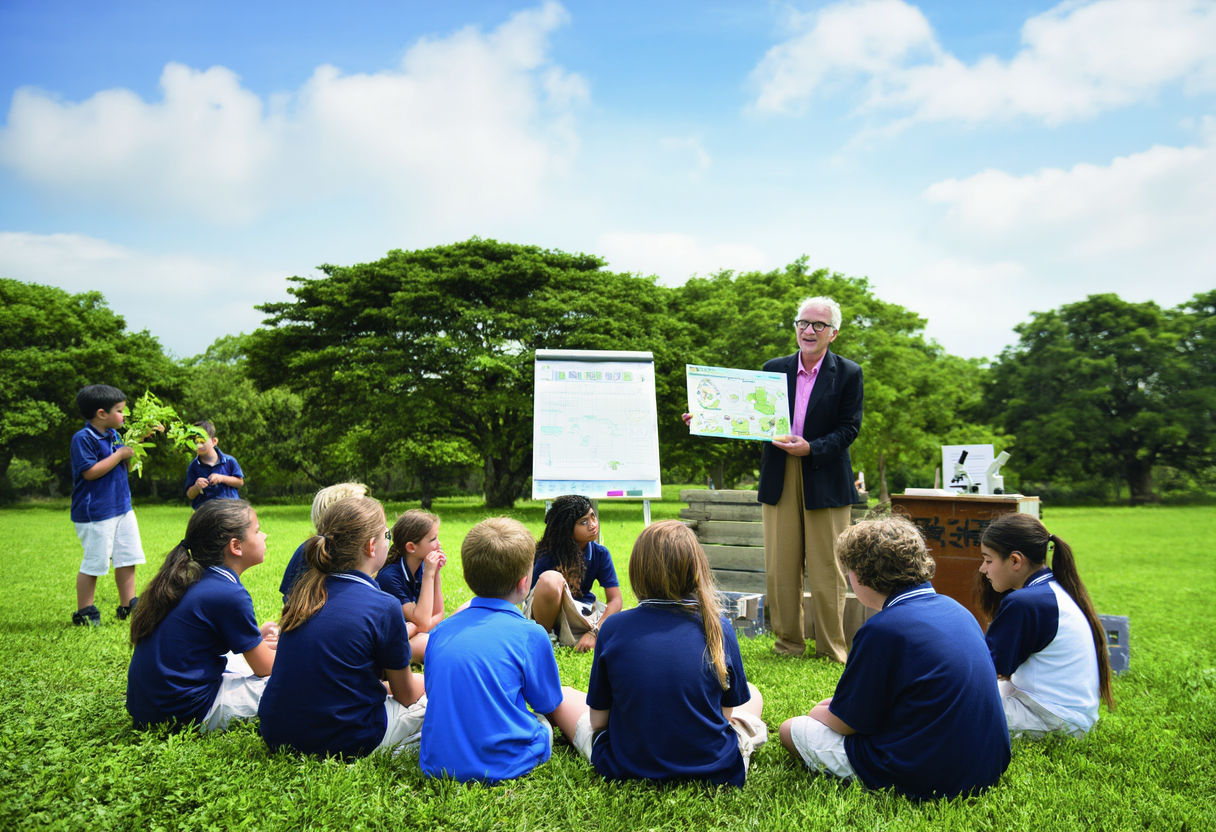The Impact of Environmental Education on Creating Eco-Conscious Citizens
Environmental Education fosters eco-consciousness among individuals, urging them to act responsibly towards nature. By integrating environmental knowledge into curricula, educators prepare future generations to tackle pressing ecological challenges. This article examines how such education cultivates a sustainable mindset in citizens and promotes collective action towards a healthier planet.
Defining Eco-Consciousness through Environmental Education
Eco-consciousness is defined by an awareness of one’s environment and an understanding of the impact of one’s actions. Environmental Education serves as a catalyst in developing this consciousness among students and communities. Through structured learning, individuals gain insights into ecological systems and human-nature interactions. It encourages them to question traditional practices and develop eco-friendly alternatives. Thus, the foundations of Environmental Education are instrumental in fostering a sense of stewardship over the Earth. Equipped with knowledge, eco-conscious citizens can advocate for sustainable practices that benefit both the environment and society.
Integrating Environmental Education in Schools
Schools play a pivotal role in integrating Environmental Education into their curricula. By incorporating eco-friendly practices and sustainability projects, schools prepare students to be informed decision-makers. For example, cultivating school gardens not only provides food but also teaches students about biodiversity and ecosystems. Engaging students in real-world issues enhances their connection to environmental responsibility. Additionally, interdisciplinary approaches can intertwine Environmental Education with subjects like math, science, and art, reinforcing its importance across disciplines. This comprehensive approach ensures that eco-consciousness is woven into the fabric of educational experiences.
Community Involvement in Environmental Education
Community involvement is fundamental for successful Environmental Education initiatives. Local organizations, environmental activists, and volunteers come together to create workshops and awareness campaigns. These efforts raise consciousness about local ecological issues and empower citizens to take action. Engaging different demographics—families, schools, and local businesses—creates a shared responsibility for the environment. Such collective actions often lead to grassroots movements that promote sustainability, ultimately resulting in healthier communities. Thus, the symbiotic relationship between community involvement and Environmental Education enhances the overall impact of eco-consciousness.
The Global Context of Environmental Education Initiatives
Around the globe, Environmental Education initiatives are gaining traction in various forms. From the introduction of nature-based preschools to corporate sustainability training, a wide spectrum of activities is emerging. These international developments showcase the universal relevance of eco-consciousness, transcending cultural barriers. By sharing knowledge and successful practices, countries can learn from one another, enhancing their own initiatives. This collaborative approach amplifies the impact of Environmental Education across borders, encouraging individuals to become eco-conscious citizens.
Barriers to Effective Environmental Education
Despite its benefits, achieving effective Environmental Education faces several barriers. Limited funding, inadequate resources, and lack of trained professionals can restrict educational efforts. Moreover, societal apathy towards environmental issues can further complicate these initiatives. To overcome these obstacles, stakeholders must advocate for greater investment in Environmental Education. By rallying public support and increasing awareness, communities can build a robust framework for implementing sustainable practices. Effective solutions require collective action and ongoing commitment to ensure a greener and more eco-conscious future.
Conclusion: The Future of Eco-Consciousness through Environmental Education
The future of Environmental Education lies in its ability to adapt to emerging challenges. By emphasizing experiential learning and community engagement, it can continue to nurture eco-conscious citizens. Investing in resources and innovative teaching methodologies will be essential for expanding Environmental Education's reach. As global challenges including climate change become more pressing, the need for eco-consciousness will only grow. In this regard, schools and communities must prioritize Environmental Education to foster a generation committed to sustainability. Together, through education, we can pave the way for a healthier planet.
